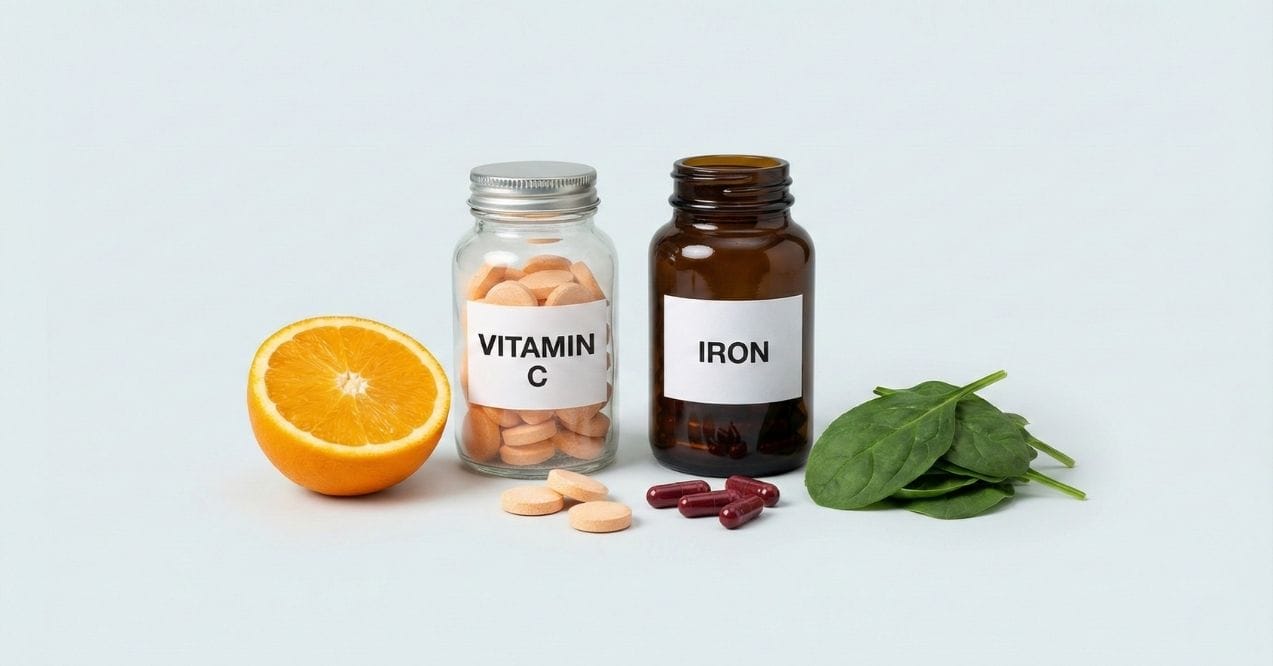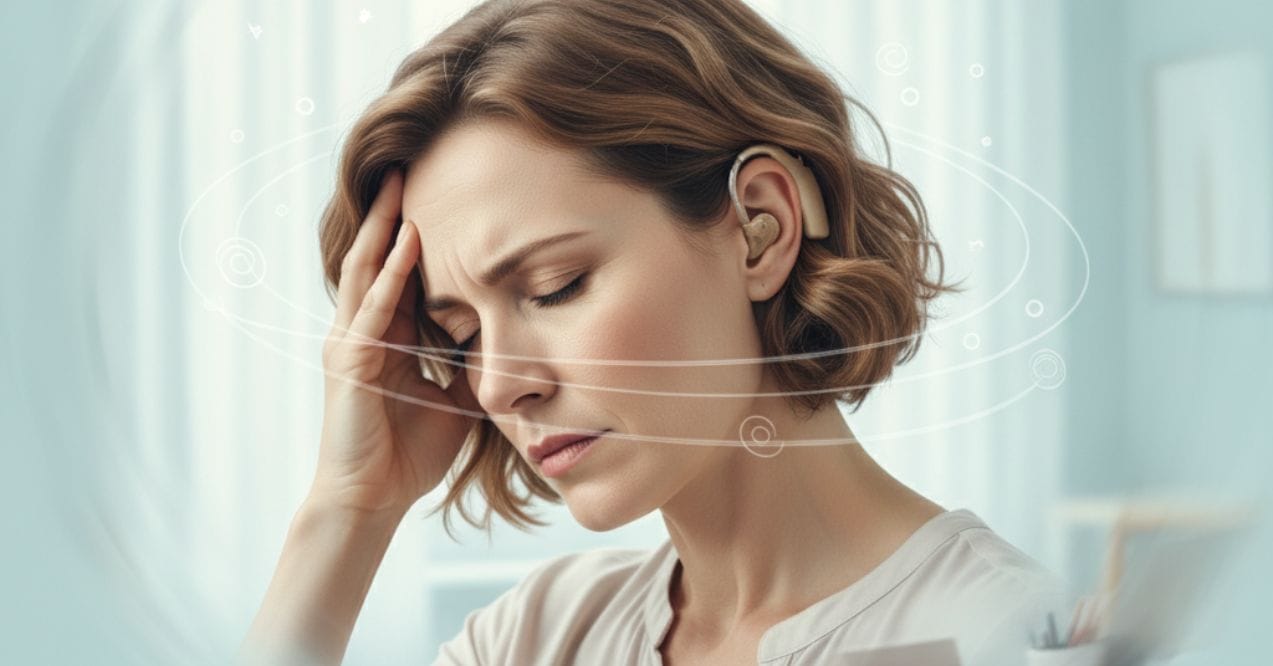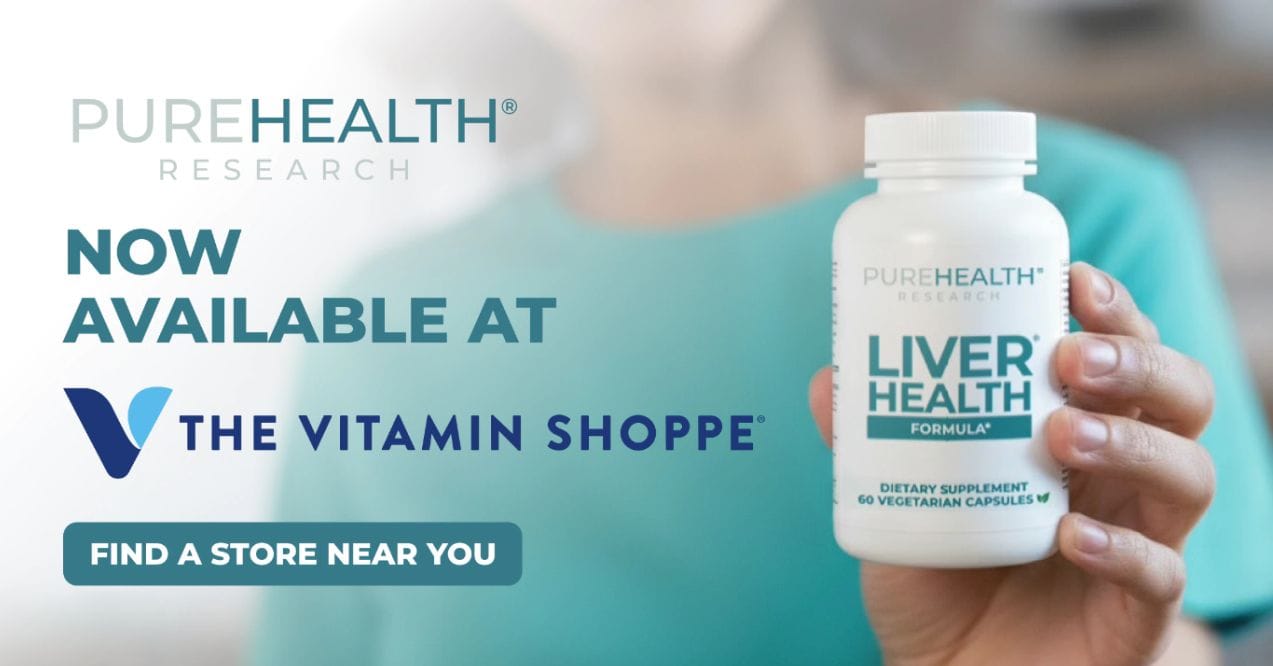Hydrolyzed Collagen vs Collagen Peptides: Which is the Best?
Discover the difference between hydrolyzed collagen vs collagen peptides, their benefits, absorption, and how to choose the right type.


Navigating the world of collagen supplements can feel overwhelming. With terms like “hydrolyzed collagen” and “collagen peptides” appearing on countless product labels, many consumers find themselves confused about which option might better support their wellness goals. Are these actually different supplements, or simply marketing variations of the same thing?
This comprehensive guide aims to clarify the similarities and differences between hydrolyzed collagen vs collagen peptides, examining their production processes, bioavailability, and potential benefits. By understanding the nuances between these popular supplements, you’ll be better equipped to select the right collagen product for your specific needs and lifestyle.
What is Collagen?
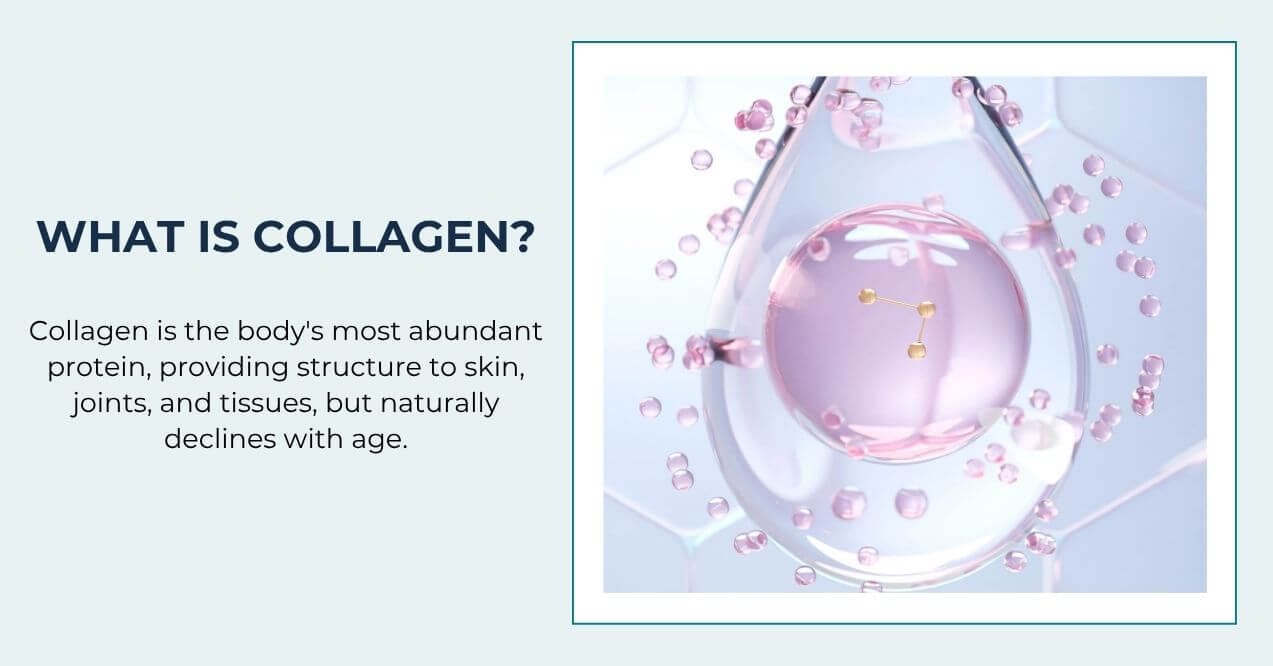
Collagen is the most abundant protein in the human body, making up approximately 30% of our total protein content. Think of collagen as the “glue” that holds your body together – it provides structure to your skin, bones, tendons, ligaments, and connective tissues.
Your body naturally produces collagen through a complex process that combines amino acids – primarily glycine, proline, and hydroxyproline. These building blocks form the tight, triple-helix structure that gives collagen its remarkable strength and resilience.
Unfortunately, collagen production begins to decline around age 25, decreasing at a rate of about 1-1.5% per year. This natural reduction leads to visible signs of aging, including fine lines, wrinkles, and less supple skin. Many people also notice decreased joint mobility and comfort as collagen levels diminish.
Environmental factors can accelerate this decline, including:
- Excessive sun exposure
- Poor dietary choices
- Smoking
- Lack of sleep
- Environmental pollutants
Understanding Hydrolyzed Collagen and Collagen Peptides
When shopping for collagen supplements, you’ll likely encounter products labeled as either “hydrolyzed collagen” or “collagen peptides.” This distinction in terminology often leads to confusion, with many consumers wondering about the differences between hydrolyzed collagen vs collagen peptides.
The simple truth: In most supplement contexts, hydrolyzed collagen and collagen peptides refer to the same thing.
Both terms describe collagen protein that has undergone a process called hydrolysis. During this process, the long, triple-helix chains of amino acids in collagen are broken down into shorter segments called peptides. Think of it as taking a long chain and cutting it into smaller, more manageable pieces.
The Hydrolysis Process
Native collagen in its natural form has a molecular weight of approximately 300,000 Daltons – far too large for your body to efficiently absorb through the digestive system. Through hydrolysis, manufacturers use water, enzymes, and controlled heat to break these large molecules into smaller peptide chains.
These smaller chains typically range from 2,000-5,000 Daltons in molecular weight, making them significantly more bioavailable. This transformation is crucial because:
- Smaller molecules are more easily dissolved in liquids
- Peptides can be more efficiently absorbed in the digestive tract
- The body can utilize these smaller units more effectively
Terminology
The term “hydrolyzed collagen” emphasizes the process the collagen has undergone, while “collagen peptides” focuses on the end product of that process. Some manufacturers may use one term over the other for marketing purposes, but the underlying product remains essentially the same.
Other Related Terms
You might also encounter these related terms on collagen products:
- Collagen hydrolysate
- Hydrolyzed collagen peptides
- Collagen protein hydrolysate
All these variations typically refer to the same thing: collagen that has been broken down into more bioavailable peptides through hydrolysis.
Benefits of Collagen Supplementation
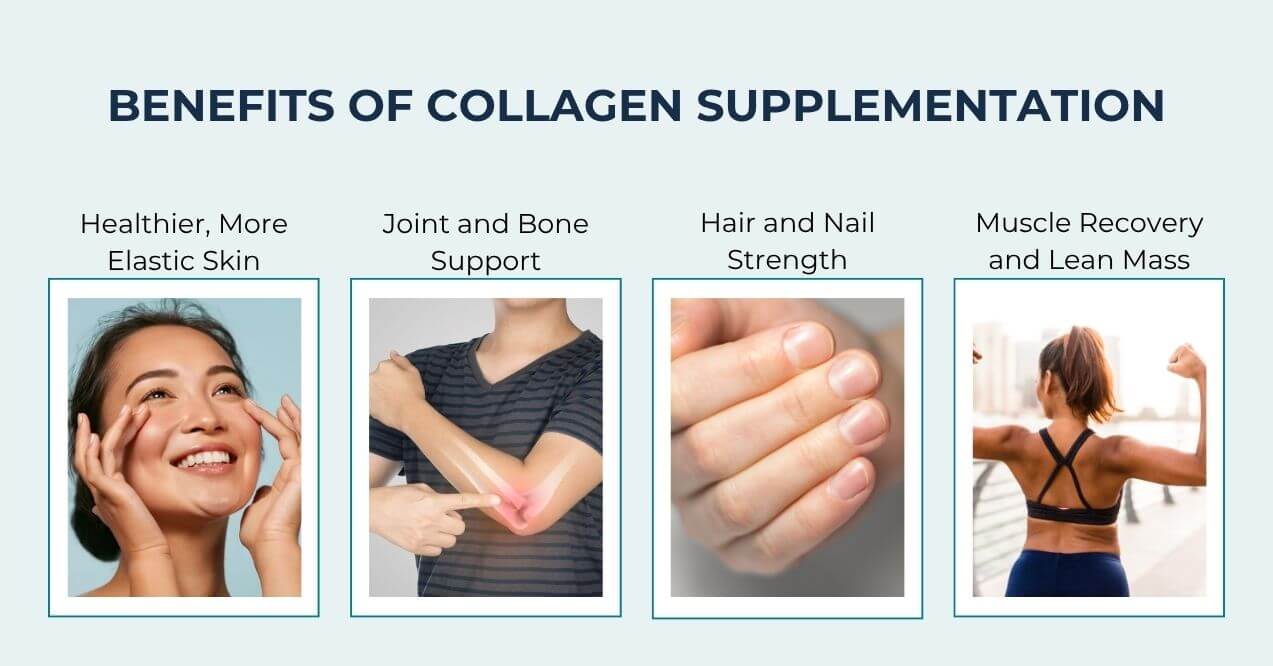
Research suggests that consistent collagen supplementation may offer several health benefits. While individual results vary, these potential advantages have made collagen supplements increasingly popular among health-conscious consumers.
1. Healthier, More Elastic Skin
As we age, our skin naturally loses elasticity and hydration. Collagen supplements may help address these changes from within.
Studies indicate that regular collagen peptide intake can improve skin hydration by increasing the skin’s moisture-binding capacity. Participants in multiple studies reported decreased skin dryness after 8-12 weeks of supplementation.
The structural support collagen provides may also help minimize the appearance of fine lines. A recent study found that women who took collagen supplements for 12 weeks experienced noticeable improvements in skin elasticity compared to those taking a placebo.
What makes this benefit practical is that these improvements occur throughout the body – not just on the face – potentially supporting healthier-looking skin on the neck, hands, and other areas that often show signs of aging. This makes collagen for menopause a popular choice among women seeking to maintain skin resilience and hydration during this stage of life.
2. Joint and Bone Support
Collagen forms a significant portion of the cartilage that cushions our joints. As this cartilage naturally wears down, many people experience decreased mobility and comfort.
Research suggests that collagen supplements may help maintain joint flexibility and comfort, particularly in active individuals and those experiencing age-related stiffness. Several studies have found that participants reported improved joint function and reduced discomfort after taking collagen consistently.
Collagen also provides structure to our bones, working alongside calcium and other minerals to maintain bone density. This becomes especially important as we age and natural bone maintenance processes become less efficient.
3. Hair and Nail Strength
Collagen provides amino acids that support keratin production – the primary protein in hair and nails. By supplying these building blocks, collagen supplements may promote stronger, faster-growing nails and potentially reduce brittleness.
Some studies indicate that collagen supplementation can decrease nail breakage and support nail growth. While research specifically on hair benefits is still emerging, many users report improved hair texture and reduced shedding.
If you’re concerned about hair thinning, you may also wonder: Can conditioner cause hair loss? While conditioner is unlikely to be the root cause, focusing on overall hair health with collagen support may help strengthen your strands from within.
4. Muscle Recovery and Lean Mass
Beyond the more well-known benefits, collagen plays an important role in supporting connective tissues throughout the muscular system.
For active individuals, collagen supplements may help support post-workout recovery by providing the amino acids needed to repair small tears in muscle tissue. This potential benefit extends to the tendons and ligaments that connect muscles to bones, which also require collagen for strength and flexibility.
Some research suggests that combining collagen supplementation with resistance training may help support lean muscle mass, particularly in older adults who naturally lose muscle mass with age.
Choosing the Right Collagen Supplement
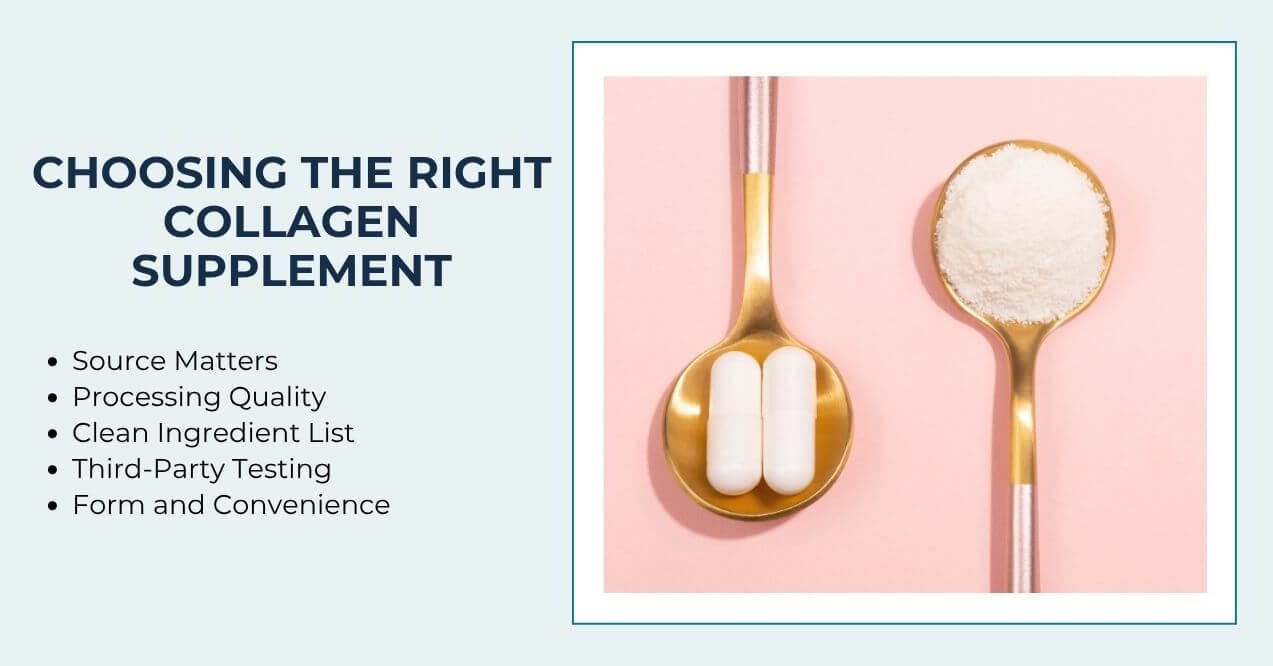
With countless collagen products on the market, finding the right supplement requires careful consideration. Here are key factors to evaluate when selecting a quality collagen product:
Source Matters
Collagen supplements come from various animal sources, each with unique properties:
- Marine collagen (from fish) – Typically has smaller peptides for potentially better absorption and is rich in Type I collagen – beneficial for skin, hair, and nails.
- Bovine collagen (from cows) – Contains both Type I and Type III collagen, supporting skin, muscles, and connective tissues. Often more affordable than other sources.
- Chicken collagen – Primarily Type II collagen, which may be particularly supportive for joint comfort and cartilage.
Processing Quality
Look for products clearly labeled as “hydrolyzed” or “peptides” to ensure optimal bioavailability. The hydrolysis process significantly impacts how well your body can utilize the supplement.
Some manufacturers specify the molecular weight of their peptides (measured in Daltons). Generally, peptides between 2,000-5,000 Daltons offer a good balance between stability and absorption.
Clean Ingredient List
Quality collagen supplements have minimal additional ingredients. Check labels for:
- No added sugars or artificial sweeteners
- No artificial colors or preservatives
- No fillers or unnecessary additives
If flavored options appeal to you, look for products using natural flavoring agents rather than artificial ones.
Third-Party Testing
Premium collagen products often undergo third-party testing to verify:
- Purity and potency
- Absence of heavy metals
- No harmful contaminants
Look for certifications or testing information on packaging or the manufacturer’s website.
Form and Convenience
Consider which form fits best into your lifestyle:
- Powders – Versatile for mixing into beverages or foods
- Capsules – Convenient for travel or on-the-go use
- Liquid formulas – Ready-to-drink but often contain additional ingredients
Product Spotlight: Marine Collagen Booster
Marine Collagen Booster stands features low-molecular-weight marine collagen tripeptides that are more readily absorbed than standard collagen products, allowing for superior results with the same amount of collagen.
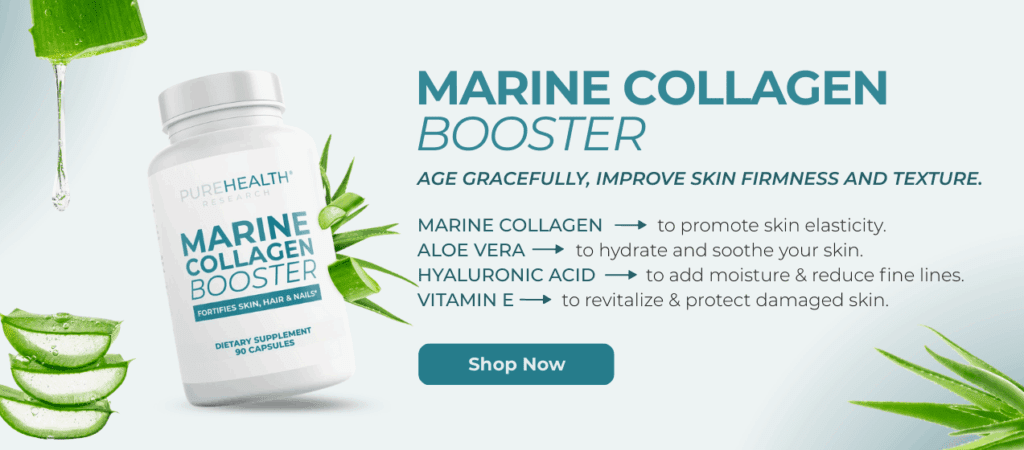
What makes this formula unique is its synergistic blend of complementary ingredients. In addition to high-quality marine collagen, it contains Aloe Vera leaf gel concentrate to support skin moisture and Hyaluronic Acid to enhance hydration and elasticity. This powerful combination works together to support:
- Natural skin rejuvenation and elasticity
- Healthy tissue maintenance
- Muscle and joint comfort
- Gut lining integrity
Each ingredient in Marine Collagen Booster undergoes rigorous testing for purity and potency, ensuring you receive a clean, effective supplement free from unnecessary additives.
For those seeking to maintain youthful, vibrant skin and support overall tissue health, Marine Collagen Booster offers a scientifically-formulated option that delivers noticeable results.
Can Collagen Cause Acne?
The relationship between collagen and acne is also a common concern for those considering supplementation. While collagen itself is unlikely to directly cause breakouts for most people, individual responses can vary.
Some users report temporary skin purging when first starting collagen supplements. This initial reaction typically resolves within a few weeks as the body adjusts to increased collagen intake. This purging process differs from traditional acne, as it represents the skin’s natural renewal cycle accelerating.
The type of collagen supplement matters too. Products containing added sugars, dairy derivatives, or artificial ingredients might contribute to skin issues in sensitive individuals. Choosing a clean, high-quality marine collagen with minimal additives generally provides the best results for skin health.
If you’re concerned about collagen and acne, consider starting with a smaller dose and gradually increasing, while maintaining consistent water intake to support your body’s natural detoxification processes.
Key Takeaways
Understanding the hydrolyzed collagen vs collagen peptides distinction is simple – they’re essentially the same thing, referring to collagen broken down for better absorption. Quality collagen supplements may support skin elasticity, joint comfort, and tissue health when used consistently. Choose products based on source quality and minimal additives. Marine Collagen Booster offers enhanced bioavailability through its low molecular weight formula. Select the option that best aligns with your specific wellness goals and commit to regular use for optimal results.
Neither is better – collagen peptides and hydrolyzed collagen are essentially the same product. Both terms describe collagen that has been broken down into smaller, more bioavailable molecules through the hydrolysis process for improved absorption.
Marine collagen is often considered most effective due to its smaller peptide size and higher bioavailability. However, effectiveness varies by individual goals – Type I collagen supports skin, Type II benefits joints, and Types I+III offer broader benefits.
Yes, in the context of collagen supplements. Collagen peptides are the result of the hydrolysis process. “Hydrolyzed collagen” emphasizes the process used, while “collagen peptides” describes the end product – small, bioavailable protein fragments.
No, you don’t need all five collagen types. Types I and III support skin, hair, and overall tissue health, while Type II primarily benefits joints. Most people achieve good results with supplements focused on Types I and III.
Sign up for our Healthy Living newsletter!
Advertisement. This site offers health, wellness, fitness and nutritional information and is designed for educational purposes only. You should not rely on this information as a substitute for, nor does it replace, professional medical advice, diagnosis, or treatment. If you have any concerns or questions about your health, you should always consult with a physician or other health-care professional. Do not disregard, avoid or delay obtaining medical or health related advice from your health-care professional because of something you may have read on this site. The use of any information provided on this site is solely at your own risk.




